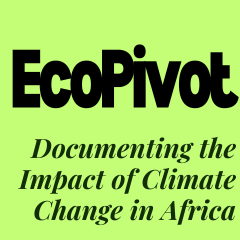Arab Bawa, an environmental advocate, often observes people tossing trash into water channels and streets with little regard for public health. This alarming behaviour tugs at his heart.
Witnessing firsthand the harmful effects of indiscriminate waste disposal, he decided to take action.
“I started by informing individuals about the adverse effects of their actions,” he says. “It was a challenging task, so I turned my focus to educating schools and youth. Behavioral changes are most effective when introduced at a young age.”
Bawa’s approach is multifaceted. He champions minimising consumption patterns and promoting reuse, principles central to his advocacy.
The young advocate, who works at the United Nations Environment Programme as a Thematic Facilitator of Plastic Action, noted that environmental care in Nigeria has declined over the years.
“As a child, every Saturday was a community sanitation day,” he recalls. “We cleaned gutters, weeded the fronts of our homes. Now, even the designated last Saturday of each month is ignored. Our environment suffers, and our children learn to disregard its care.”

Now, more than ever, at the heart of the country’s bustling streets and tranquil water channels, discarded plastic bottles and waste debris tell a story of neglect and apathy.
Compounding Environmental Issues
Nasarawa, a north-central state in Nigeria where Bawa lives, grapples with severe environmental issues, according to a report by World Bank in 2022. Land degradation and pollution are rampant, exacerbated by erosion, and desert encroachment.
Urban centers like Karu area in Nasarawa bear the brunt, with their once-protective green covers dwindling, leaving soil vulnerable to nutrient depletion and erosion, Bawa says.
Also, water pollution compounds these issues, with industrial waste threatening rivers, agricultural runoff degrading land quality, and poor sanitation practices scattering waste across landscapes and waterways.
A recent incident in Benue, where an industry’s disposal of waste into a stream drew widespread criticism, highlights the urgent need for comprehensive waste management solutions.
“International organizations must share knowledge, research, and technological advancements,” Bawa asserts. “We need to monitor and evaluate industrial sites, control deforestation, and address financial constraints through collaborative efforts.”
Integration of Environmental Education

Bawa’s vision goes beyond immediate solutions; it encompasses a future where environmental stewardship is ingrained in the fabric of society:
“Communities can contribute to mitigating climate change by adopting resilience methods, such as planting climate-resilient crops like yam, groundnut, and millet. Additionally, leveraging traditional knowledge of sustainable land management can aid in soil and land protection. This traditional knowledge is also valuable for resource conservation, helping to prevent overuse and exploitation.”

Also, Bawa believes community awareness can enhance participation.
“Utilizing community education, awareness, and advocacy can significantly enhance community participation in environmental initiatives. This approach can promote the adoption of clean technologies and strengthen enforcement of environmental policies. By balancing economic and environmental practices, we can ensure the protection of environmental laws and achieve sustainable development,” he says.

He advocates for the integration of environmental education into school curricula, empowering students to take collective action. He sees potential in environmental competitions at state and local levels, spurring innovative ideas that can evolve into entrepreneurial ventures benefiting the community.
“The government can revitalise existing infrastructure to enhance recycling and efficient waste collection,” he suggests. “Building new facilities in underserved communities can create employment opportunities while mitigating environmental issues.”
As Arab Bawa continues his tireless work, he remains driven by a simple yet profound belief: that every piece of waste properly managed, every tree planted, and every child educated on environmental stewardship is a step toward a greener, more sustainable future for Nigeria.


